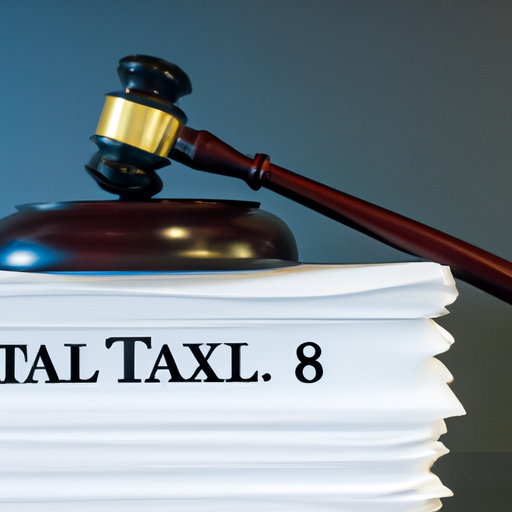“Secure Your Business with a Professional Business Lawyer in Heber City, Utah”
Introduction
Welcome to Heber City, Utah, home to some of the best business lawyers in the state. Whether you are a small business owner or a large corporation, you can find the legal representation you need to protect your interests. Our experienced business lawyers are dedicated to providing the highest quality legal services to our clients. We understand the complexities of business law and strive to provide the best possible advice and representation. Our attorneys are knowledgeable in all areas of business law, including contract law, corporate law, intellectual property law, and more. We are committed to helping our clients achieve their goals and protect their interests. With our experienced team of business lawyers, you can rest assured that your legal needs will be taken care of.
The Advantages of Hiring a Business Lawyer in Heber City, Utah
Hiring a business lawyer in Heber City, Utah can be a great asset to any business. A business lawyer can provide invaluable legal advice and guidance to help protect your business from potential legal issues. Here are some of the advantages of hiring a business lawyer in Heber City, Utah:
1. Expertise: A business lawyer in Heber City, Utah has the expertise and experience to provide sound legal advice and guidance. They understand the complexities of business law and can help you navigate the legal system.
2. Cost Savings: Hiring a business lawyer in Heber City, Utah can save you money in the long run. A business lawyer can help you avoid costly legal mistakes and ensure that your business is in compliance with all applicable laws.
3. Protection: A business lawyer in Heber City, Utah can help protect your business from potential legal issues. They can help you draft contracts, review documents, and provide advice on how to protect your business from potential legal issues.
4. Negotiation: A business lawyer in Heber City, Utah can help you negotiate contracts and other legal documents. They can help you get the best deal possible and ensure that your interests are protected.
5. Representation: A business lawyer in Heber City, Utah can represent you in court if necessary. They can provide legal advice and represent you in court proceedings.
Hiring a business lawyer in Heber City, Utah can be a great asset to any business. A business lawyer can provide invaluable legal advice and guidance to help protect your business from potential legal issues. They can help you save money, protect your business, negotiate contracts, and represent you in court if necessary. If you are looking for a business lawyer in Heber City, Utah, contact a local law firm today.
How to Prepare for a Business Law Consultation in Heber City, Utah
Preparing for a business law consultation in Heber City, Utah is an important step in ensuring that you get the most out of your consultation. Here are some tips to help you prepare for your consultation:
1. Research the Lawyer: Before you meet with a business law attorney, it is important to research the lawyer’s background and experience. Look for reviews from past clients, read up on the lawyer’s areas of expertise, and check to see if they have any certifications or awards.
2. Gather Documents: Before your consultation, make sure to gather any relevant documents that may be helpful in your case. This could include contracts, financial statements, or other documents related to your business.
3. Prepare Questions: Before your consultation, make a list of questions that you would like to ask the lawyer. This will help you make the most of your consultation and ensure that you get the answers you need.
4. Know Your Goals: Before your consultation, it is important to have a clear understanding of your goals. This will help the lawyer understand your needs and provide you with the best advice.

By following these tips, you can ensure that you are prepared for your business law consultation in Heber City, Utah. With the right preparation, you can get the most out of your consultation and get the advice you need to make the best decisions for your business.
The Role of a Business Lawyer in Heber City, Utah
A business lawyer in Heber City, Utah plays an important role in helping businesses succeed. Business lawyers provide legal advice and services to businesses of all sizes, from small startups to large corporations. They help businesses navigate the complex legal landscape and ensure that their operations are compliant with applicable laws and regulations.
Business lawyers in Heber City, Utah provide a variety of services to their clients. They can help businesses draft contracts, review and negotiate agreements, and provide advice on corporate governance and compliance. They can also help businesses with intellectual property protection, such as trademarks and copyrights. Additionally, business lawyers can assist with dispute resolution, including litigation and arbitration.
Business lawyers in Heber City, Utah also provide advice on tax matters. They can help businesses understand their tax obligations and ensure that they are in compliance with applicable laws. They can also provide advice on how to structure transactions to minimize tax liability.
Business lawyers in Heber City, Utah can also provide advice on mergers and acquisitions. They can help businesses evaluate potential deals and ensure that the terms of the transaction are in the best interests of the business. Additionally, they can provide advice on how to structure the transaction to maximize the benefits for the business.
Finally, business lawyers in Heber City, Utah can provide advice on a variety of other legal matters. They can help businesses with employment law issues, such as drafting employee handbooks and policies, and providing advice on labor and employment law compliance. They can also provide advice on real estate transactions, such as leases and purchase agreements.
Business lawyers in Heber City, Utah play an important role in helping businesses succeed. They provide legal advice and services to businesses of all sizes, from small startups to large corporations. They help businesses navigate the complex legal landscape and ensure that their operations are compliant with applicable laws and regulations. They can also provide advice on a variety of other legal matters, such as employment law, tax matters, and mergers and acquisitions.
What to Expect When Working with a Business Lawyer in Heber City, Utah
When working with a business lawyer in Heber City, Utah, you can expect a professional and knowledgeable legal partner who will provide you with the best advice and guidance for your business. Your lawyer will be able to provide you with a comprehensive understanding of the legal issues that may affect your business, as well as the best strategies for protecting your interests.
Your lawyer will be able to provide you with advice on a variety of topics, including business formation, contracts, intellectual property, employment law, and more. They will be able to help you understand the legal implications of any decisions you make, and provide you with the necessary guidance to ensure that your business is compliant with all applicable laws.
Your lawyer will also be able to provide you with assistance in negotiating and drafting contracts, as well as providing advice on dispute resolution. They will be able to help you understand the legal implications of any agreements you enter into, and provide you with the necessary guidance to ensure that your business is protected.
Your lawyer will also be able to provide you with advice on how to protect your business from potential legal issues, such as lawsuits or other disputes. They will be able to provide you with the necessary guidance to ensure that your business is protected from any potential legal issues.
Finally, your lawyer will be able to provide you with advice on how to handle any disputes that may arise. They will be able to provide you with the necessary guidance to ensure that your business is protected from any potential legal issues.
Overall, when working with a business lawyer in Heber City, Utah, you can expect a professional and knowledgeable legal partner who will provide you with the best advice and guidance for your business. Your lawyer will be able to provide you with a comprehensive understanding of the legal issues that may affect your business, as well as the best strategies for protecting your interests.
Understanding the Different Types of Business Law in Heber City, Utah
Business law in Heber City, Utah, is a complex and ever-evolving field of law. It is important for business owners to understand the different types of business law in order to ensure that their business is compliant with all applicable laws and regulations.
The first type of business law in Heber City, Utah, is contract law. This type of law governs the formation, performance, and enforcement of contracts between two or more parties. It is important for business owners to understand the basics of contract law in order to ensure that their contracts are legally binding and enforceable.
The second type of business law in Heber City, Utah, is corporate law. This type of law governs the formation, operation, and dissolution of corporations. It is important for business owners to understand the basics of corporate law in order to ensure that their business is properly structured and compliant with all applicable laws and regulations.
The third type of business law in Heber City, Utah, is employment law. This type of law governs the relationship between employers and employees. It is important for business owners to understand the basics of employment law in order to ensure that their business is compliant with all applicable laws and regulations.
The fourth type of business law in Heber City, Utah, is intellectual property law. This type of law governs the protection of intellectual property, such as patents, trademarks, and copyrights. It is important for business owners to understand the basics of intellectual property law in order to ensure that their business is properly protected from infringement.
The fifth type of business law in Heber City, Utah, is tax law. This type of law governs the taxation of businesses and individuals. It is important for business owners to understand the basics of tax law in order to ensure that their business is compliant with all applicable laws and regulations.
By understanding the different types of business law in Heber City, Utah, business owners can ensure that their business is compliant with all applicable laws and regulations. This will help to protect their business from potential legal issues and ensure that their business is successful.
Common Business Law Issues in Heber City, Utah
Heber City, Utah is a small city located in Wasatch County, and is home to a variety of businesses. As with any business, there are certain common business law issues that must be addressed.
One of the most important issues is the formation of a business entity. In Heber City, businesses must register with the Utah Division of Corporations and Commercial Code. This process requires the filing of articles of incorporation, which outlines the purpose of the business, the names of the owners, and other important information. Additionally, businesses must obtain any necessary licenses or permits from the city or county in order to legally operate.
Another common business law issue is the protection of intellectual property. In Heber City, businesses must register any trademarks, copyrights, or patents with the United States Patent and Trademark Office. This ensures that the business’s intellectual property is protected from infringement.
Contracts are also an important part of business law. In Heber City, businesses must ensure that all contracts are legally binding and enforceable. This includes contracts with customers, vendors, and employees. It is important to ensure that all contracts are written in clear and unambiguous language, and that all parties understand their rights and obligations under the contract.
Finally, businesses must comply with all applicable laws and regulations. This includes laws related to taxes, labor, and environmental protection. Businesses must also comply with any local ordinances or regulations that may apply.
By understanding and addressing these common business law issues, businesses in Heber City can ensure that they are operating legally and in compliance with all applicable laws.
The Benefits of Working with a Business Lawyer in Heber City, Utah
Working with a business lawyer in Heber City, Utah can be a great asset to any business. A business lawyer can provide invaluable advice and guidance on a variety of legal matters, from contract drafting and review to dispute resolution and litigation. Here are some of the benefits of working with a business lawyer in Heber City, Utah:
1. Expertise: Business lawyers in Heber City, Utah have a deep understanding of the laws and regulations that govern businesses in the state. They can provide advice on how to comply with the law and protect your business from potential legal issues.
2. Cost Savings: Working with a business lawyer can save you money in the long run. A lawyer can help you avoid costly mistakes and ensure that your business is in compliance with the law.
3. Negotiation: Business lawyers in Heber City, Utah are experienced negotiators. They can help you negotiate contracts, resolve disputes, and protect your interests in any business transaction.
4. Litigation: If your business is involved in a dispute, a business lawyer can represent you in court and help you achieve the best possible outcome.
5. Advice: Business lawyers in Heber City, Utah can provide advice on a variety of legal matters, from contract drafting and review to dispute resolution and litigation.
Working with a business lawyer in Heber City, Utah can be a great asset to any business. A business lawyer can provide invaluable advice and guidance on a variety of legal matters, from contract drafting and review to dispute resolution and litigation. They can help you save money, negotiate contracts, and protect your interests in any business transaction. With the help of a business lawyer, you can ensure that your business is in compliance with the law and that you are making the best decisions for your business.
How to Choose the Right Business Lawyer in Heber City, Utah
Choosing the right business lawyer in Heber City, Utah is an important decision for any business. A business lawyer can provide legal advice and representation in a variety of areas, including contract negotiation, business formation, and dispute resolution. When selecting a business lawyer, it is important to consider the lawyer’s experience, qualifications, and reputation.
Experience: When selecting a business lawyer, it is important to consider the lawyer’s experience. Look for a lawyer who has experience in the specific area of law that your business needs. Ask the lawyer about their experience in the field and the types of cases they have handled.
Qualifications: It is also important to consider the lawyer’s qualifications. Look for a lawyer who is licensed to practice law in the state of Utah and who is a member of the Utah State Bar Association. Additionally, look for a lawyer who has experience in the specific area of law that your business needs.
Reputation: Finally, it is important to consider the lawyer’s reputation. Ask for references from other businesses that have used the lawyer’s services. Additionally, look for reviews online to get an idea of the lawyer’s reputation.
By considering the lawyer’s experience, qualifications, and reputation, you can make an informed decision when selecting a business lawyer in Heber City, Utah. With the right lawyer, you can ensure that your business is properly represented and protected.
Areas We Serve
We serve individuals and businesses in the following locations:
Salt Lake City Utah
West Valley City Utah
Provo Utah
West Jordan Utah
Orem Utah
Sandy Utah
Ogden Utah
St. George Utah
Layton Utah
South Jordan Utah
Lehi Utah
Millcreek Utah
Taylorsville Utah
Logan Utah
Murray Utah
Draper Utah
Bountiful Utah
Riverton Utah
Herriman Utah
Spanish Fork Utah
Roy Utah
Pleasant Grove Utah
Kearns Utah
Tooele Utah
Cottonwood Heights Utah
Midvale Utah
Springville Utah
Eagle Mountain Utah
Cedar City Utah
Kaysville Utah
Clearfield Utah
Holladay Utah
American Fork Utah
Syracuse Utah
Saratoga Springs Utah
Magna Utah
Washington Utah
South Salt Lake Utah
Farmington Utah
Clinton Utah
North Salt Lake Utah
Payson Utah
North Ogden Utah
Brigham City Utah
Highland Utah
Centerville Utah
Hurricane Utah
South Ogden Utah
Heber Utah
West Haven Utah
Bluffdale Utah
Santaquin Utah
Smithfield Utah
Woods Cross Utah
Grantsville Utah
Lindon Utah
North Logan Utah
West Point Utah
Vernal Utah
Alpine Utah
Cedar Hills Utah
Pleasant View Utah
Mapleton Utah
Stansbury Par Utah
Washington Terrace Utah
Riverdale Utah
Hooper Utah
Tremonton Utah
Ivins Utah
Park City Utah
Price Utah
Hyrum Utah
Summit Park Utah
Salem Utah
Richfield Utah
Santa Clara Utah
Providence Utah
South Weber Utah
Vineyard Utah
Ephraim Utah
Roosevelt Utah
Farr West Utah
Plain City Utah
Nibley Utah
Enoch Utah
Harrisville Utah
Snyderville Utah
Fruit Heights Utah
Nephi Utah
White City Utah
West Bountiful Utah
Sunset Utah
Moab Utah
Midway Utah
Perry Utah
Kanab Utah
Hyde Park Utah
Silver Summit Utah
La Verkin Utah
Morgan Utah
Heber City Business Attorney Consultation
When you need help from an attorney who represents businesses in Heber City Utah, call Jeremy D. Eveland, MBA, JD (801) 613-1472 for a consultation.
Jeremy Eveland
17 North State Street
Lindon UT 84042
(801) 613-1472
Home
Related Posts
Business Law Attorney
Business Lawyer Syracuse Utah
How To Handle Customer Complaints In Utah
Business Lawyer Saratoga Springs Utah
The Role of Business Law in Protecting Minority Shareholder Rights
Business Lawyer Magna Utah
What Are The 4 Different Types of Business Law?
Business Lawyer Washington Utah
Title Lawyers in Utah
Business Lawyer South Salt Lake Utah
Legal Requirements for Utah Technology Startups
Business Lawyer Farmington Utah
Due Diligence For Buying A Utah Business
Business Lawyer Clinton Utah
Understanding Utah’s Labor Laws
Business Lawyer North Salt Lake Utah
Product Liability Laws in Utah
Business Lawyer Payson Utah
Preventing Cybersecurity Breaches
Business Lawyer North Ogden Utah
Piercing the Corporate Veil
Business Lawyer Brigham City Utah
Franchise Disclosure Laws
Business Lawyer Highland Utah
Mastering Business Law: Key Essentials For Success
Business Lawyer Centerville Utah
Shareholder Agreements in Utah
Business Lawyer Hurricane Utah
Business License Attorney
Business Lawyer South Ogden Utah
Last Will and Testament Lawyer
Business Lawyer Heber City Utah









